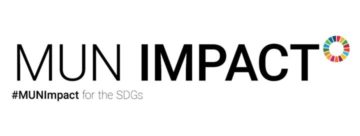Alejandro Borja, Camila Cabrera, and Antonella Cicconi gave us an incredible presentation where they made us question our ideas about Latin America.
Alejandro, the executive director and founder of YudLeads, was a lead mentor along with Antonella and Camila for a program developed by him and his colleagues called MUN en Casa. He is currently studying law at Universidad San Francisco de Quito. He is a teacher by vocation, a specialist in youth empowerment, who’s passionate about MUN and dance.
Camila is a co-founder of YudLeads and as mentioned before she was also a lead mentor for MUN@home however, she also performed a role as a translator during the program. Currently, she’s a student at the Faculty of Law of Universidad San Francisco de Quito. Camila is also a specialist in creating public policies but above all, she has a very particular interest in education and gender equality.
Antonella is a professional interpreter who graduated from the Universidad del Museo Social Argentino and an assistant professor of the “English language” at the university. In addition to being a founder, director, and teacher of ‘help! – Center of English Language Studies’ she is studying pedagogy and is completely passionate about her work, art, and education as she believes that education is one of the most powerful tools to complete the SDGs.
Alejandro commented that Latin America is the region with the highest inequality ranges as only 10% of the population speaks the English language fluently. English language speakers are mostly private school students or people with a high economic flow. Inspired by these data the team of YudLeads decided to reduce inequalities by creating a program that was completely developed in Spanish.
MUN en C@sa took the initiatives of MUN@Home and translated them into Spanish, however, as the program advanced, the awareness of the cultural differences between Latin America and the United States just increased.
The apps used at MUN@Home were completely unknown for Latin America delegates so the lead mentors had to change to something easier: google classroom.
The delegates were divided into committees chaired by a lead mentor and two mentors, the lead mentors were people with a lot of experience in MUN who had key knowledge to start the program while the mentors were people who knew MUN didn’t have enough experience that’s why they took courses to become better.
The teaching strategy was not only a mentor talking about the topics, but also sharing experiences and creating ties within the program. The objective was to create a closeness between delegates, mentors, and lead mentors, and as Antonella said “we learn from the delegates, and the delegates learn from us.”
The objective of the program was fulfilled, the lead mentors invited recognized speakers each week and the delegates not only listened to the presentations but got engaged to it.
One session per week was not enough, so one delegate proposed to have extra sessions and also have weekly debates where an SDG would be evaluated. The mentors not only listened to the proposal but executed it.
Engaging delegates was an easy task, although the challenge that constantly arose was to ensure that delegates had an appropriate vocabulary for discussions and that they felt safe applying what they had learned.
However, step by step, the delegates achieved the use of proper language and felt safe while talking.
All knowledge can be obtained from our homes, it is our responsibility not only as delegates, diplomats or ambassadors but as global citizens to inform ourselves about the situation around us.
“A great speaker is one who manages to awaken certain emotions in the audience that others would not, is one who makes people feel as if the speech were theirs”
-ALRO.
_
By Aleha
